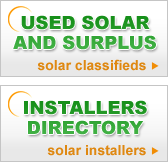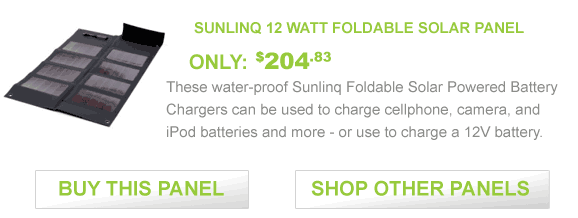|
>> Back to Solar Panel Center <<
SUNLINQ Solar PanelsSunlinq is a company that makes flexible solar panels. Flexible panels are one of the first uses to which we have put thin film technology. The current generation of flexible panels are targeted towards campers and others who need a portable solar panel to power small electronic devices such as a battery charger, cell phone, or mp3 player. The output of a Sunlinq solar panel ranges from the small 6.5 watt panel up to the largest panel they make, a 25 watt model. Like all solar panels, they create Direct Current electricity. The upside to this is that self contained devices that operate from battery power utilize direct current because it is easier to manage and store than Alternating Current. Since your mobile devices are already running on DC power, using a solar panel to recharge them means that you are getting the most efficient conversion of sunlight to power possible. In a home photovoltaic system, the sunlight is first converted to DC power, and then the DC power is run through an inverter to convert it to AC power. This extra step causes a loss in efficiency, as well as storage problems. AC power is not something you can store in a battery the way DC power is, so if your home system utilizes battery backup, you have to put it before your inverter in the system.
 |










